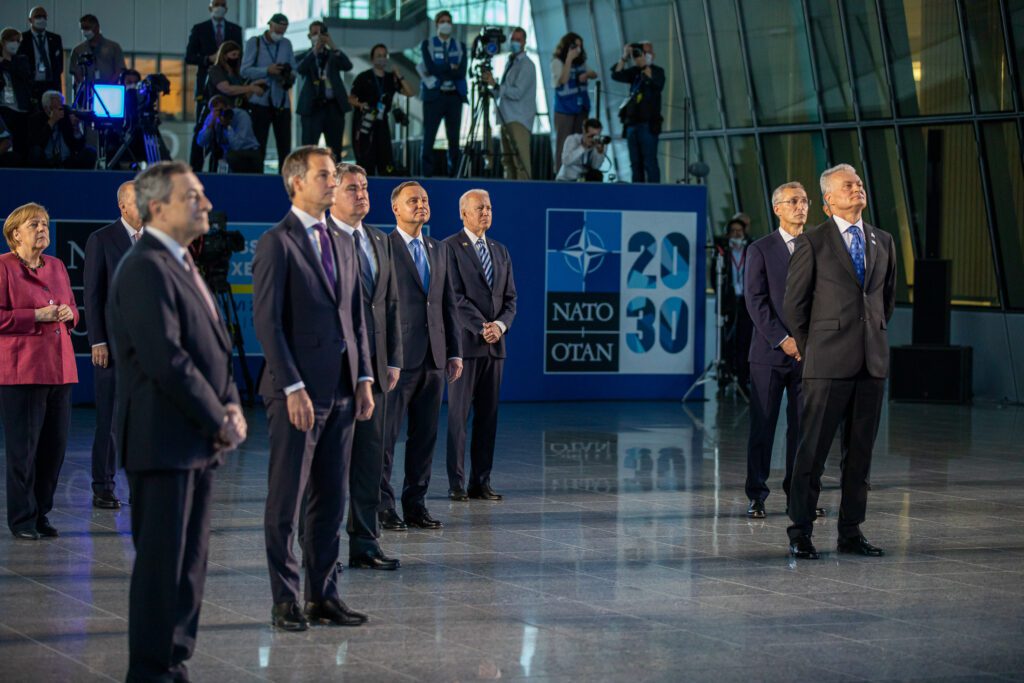NATO, the North Atlantic Treaty Organization, is not just a military alliance, but also contributes to stability and prosperity through its economic impact. NATO encourages member countries to spend a minimum of 2% of their GDP on defense, leading to increased military expenditure and investments in defense industries. This boosts security and drives economic growth by creating jobs and trade opportunities. NATO also promotes collaboration among member countries’ defense industries, reducing costs and driving innovation. The alliance invests in critical infrastructure and cutting-edge technologies, strengthening member countries and attracting foreign investments. NATO’s partnerships and cooperative security initiatives also have positive economic impacts by fostering stability and encouraging economic cooperation and growth. Overall, NATO’s economic activities contribute to the well-being of member nations and the international community.
NATO’s Economic Impact: Fostering Stability and Prosperity
Introduction
NATO, the North Atlantic Treaty Organization, is a political and military alliance that was established in 1949 to ensure the collective defense of its member states. While its primary focus is on matters of security and defense, NATO also plays a significant role in fostering stability and prosperity through its economic impact. This article explores how NATO’s economic activities contribute to the well-being of its member nations and the wider international community.
Investments in Defense
One of the most prominent ways NATO fosters stability and prosperity is through its investments in defense. The alliance encourages its member countries to spend a minimum of 2% of their GDP on defense, leading to a boost in military expenditure and investments in defense industries. This not only enhances the security of member nations against potential threats but also drives economic growth through the creation of jobs, technological advancements, and increased trade opportunities.
Defense Industry Collaboration
NATO promotes collaboration and partnerships among member countries’ defense industries. This cooperation enables information and technology sharing, joint research and development, and defense procurement. By pooling resources and expertise, member states reduce duplication and costs while maximizing efficiency. This collaboration also encourages the growth of defense-related industries, which stimulates economic development and innovation.
Strengthening Infrastructure and Technologies
NATO actively supports the development of critical infrastructure and cutting-edge technologies within member states. The alliance invests in the improvement of transportation systems, telecommunication networks, and cyber defense capabilities, among others. Such investments not only strengthen the security and resilience of member countries but also provide significant economic benefits. Improved infrastructure enhances trade opportunities, attracts foreign investments, and fosters regional development.
Promoting Trade and Investments
NATO plays a crucial role in promoting trade and investments among its member states. By providing a stable security environment, the alliance helps create a favorable climate for economic activities. The reduction of military tensions and the elimination of potential security threats within member nations result in increased trade flows and investment attractiveness. This environment of political stability encourages foreign investors to enter previously high-risk markets, boosting local economies and creating employment opportunities.
Supporting Economic Recovery and Development
In times of economic crisis or natural disasters, NATO member states can request assistance through the alliance’s civil emergency planning mechanisms. NATO provides support in terms of logistics, transportation capabilities, and expertise in disaster response. This assistance not only helps mitigate the immediate impact of crises but also contributes to long-term economic recovery and development, enabling member countries to build back stronger and more resilient economies.
Partnerships and Cooperative Security
NATO’s partnerships with non-member countries also have a positive economic impact. Through cooperation and assistance programs, NATO works towards fostering stability in regions beyond its member states. By promoting security and political stability in partner countries, NATO opens up opportunities for economic cooperation and trade. This increased regional stability encourages foreign investments and boosts economic growth not only in partner nations but also in NATO member countries.
Conclusion
While NATO’s primary mission is to ensure collective defense, the alliance’s economic impact is a significant underlying factor in fostering stability and prosperity. NATO’s investments in defense, collaborative defense industry initiatives, infrastructure and technology advancements, promotion of trade and investments, support for economic recovery, and partnerships all contribute to the well-being of member nations and the wider international community. By fostering economic stability, NATO provides a solid foundation for growth, prosperity, and a secure future.
